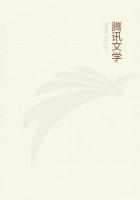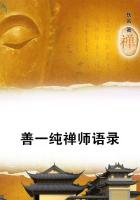In many cases this could not be otherwise: thus the inherited peculiarities in the horns of cattle could appear only in the offspring when nearly mature;peculiarities in the silkworm are known to appear at the corresponding caterpillar or cocoon stage. But hereditary diseases and some other facts make me believe that the rule has a wider extension, and that when there is no apparent reason why a peculiarity should appear at any particular age, yet that it does tend to appear in the offspring at the same period at which it first appeared in the parent. I believe this rule to be of the highest importance in explaining the laws of embryology. These remarks are of course confined to the first appearance of the peculiarity, and not to its primary cause, which may have acted on the ovules or male element; in nearly the same manner as in the crossed offspring from a short-horned cow by a long-horned bull, the greater length of horn, though appearing late in life, is clearly due to the male element.
Having alluded to the subject of reversion, I may here refer to a statement often made by naturalists namely, that our domestic varieties, when run wild, gradually but certainly revert in character to their aboriginal stocks.
Hence it has been argued that no deductions can be drawn from domestic races to species in a state of nature. I have in vain endeavoured to discover on what decisive facts the above statement has so often and so boldly been made. There would be great difficulty in proving its truth: we may safely conclude that very many of the most strongly-marked domestic varieties could not possibly live in a wild state. In many cases we do not know what the aboriginal stock was, and so could not tell whether or not nearly perfect reversion had ensued. It would be quite necessary, in order to prevent the effects of intercrossing, that only a single variety should be turned loose in its new home. Nevertheless, as our varieties certainly do occasionally revert in some of their characters to ancestral forms, it seems to me not improbable, that if we could succeed in naturalising, or were to cultivate, during many generations, the several races, for instance, of the cabbage, in very poor soil (in which case, however, some effect would have to be attributed to the direct action of the poor soil), that they would to a large extent, or even wholly, revert to the wild aboriginal stock. Whether or not the experiment would succeed, is not of great importance for our line of argument; for by the experiment itself the conditions of life are changed. If it could be shown that our domestic varieties manifested a strong tendency to reversion, that is, to lose their acquired characters, whilst kept under unchanged conditions, and whilst kept in a considerable body, so that free intercrossing might check, by blending together, any slight deviations of structure, in such case, I grant that we could deduce nothing from domestic varieties in regard to species. But there is not a shadow of evidence in favour of this view: to assert that we could not breed our cart and race-horses, long and short-horned cattle and poultry of various breeds, and esculent vegetables, for an almost infinite number of generations, would be opposed to all experience. I may add, that when under nature the conditions of life do change, variations and reversions of character probably do occur; but natural selection, as will hereafter be explained, will determine how far the new characters thus arising shall be preserved.
When we look to the hereditary varieties or races of our domestic animals and plants, and compare them with species closely allied together, we generally perceive in each domestic race, as already remarked, less uniformity of character than in true species. Domestic races of the same species, also, often have a somewhat monstrous character; by which I mean, that, although differing from each other, and from the other species of the same genus, in several trifling respects, they often differ in an extreme degree in some one part, both when compared one with another, and more especially when compared with all the species in nature to which they are nearest allied. With these exceptions (and with that of the perfect fertility of varieties when crossed, a subject hereafter to be discussed), domestic races of the same species differ from each other in the same manner as, only in most cases in a lesser degree than, do closely-allied species of the same genus in a state of nature. I think this must be admitted, when we find that there are hardly any domestic races, either amongst animals or plants, which have not been ranked by some competent judges as mere varieties, and by other competent judges as the descendants of aboriginally distinct species. If any marked distinction existed between domestic races and species, this source of doubt could not so perpetually recur. It has often been stated that domestic races do not differ from each other in characters of generic value. I think it could be shown that this statement is hardly correct; but naturalists differ most widely in determining what characters are of generic value; all such valuations being at present empirical.
Moreover, on the view of the origin of genera which I shall presently give, we have no right to expect often to meet with generic differences in our domesticated productions.
When we attempt to estimate the amount of structural difference between the domestic races of the same species, we are soon involved in doubt, from not knowing whether they have descended from one or several parent-species.


